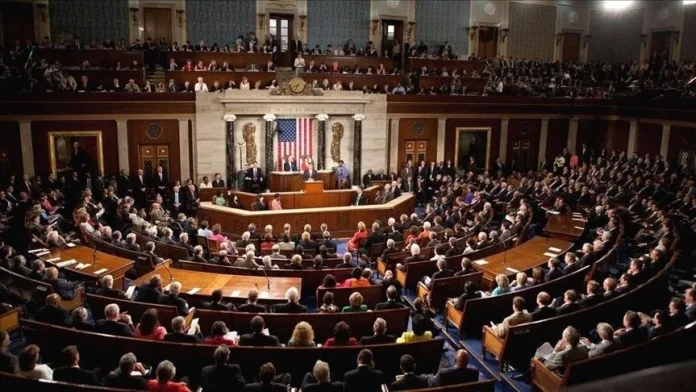The Senate Passes Surveillance Bill Despite Privacy Concerns
The Senate has passed a bill that reauthorizes Section 702 of the Foreign Intelligence Surveillance Act (FISA), with President Joe Biden signing it into law. This legislation, which received a 60-34 vote, has been the subject of debate due to concerns over privacy and potential abuses.
Background and Controversy
Section 702 of FISA allows the government to collect large amounts of internet and cell phone data on foreign targets. However, this process also results in the incidental collection of information on hundreds of thousands of Americans without a warrant. Critics refer to these searches as “backdoor” searches, raising concerns about privacy. Supporters argue that Section 702 is crucial for national security, providing intelligence agencies with quick access to data on foreign targets. It has been credited with helping monitor Russia’s intentions in Ukraine, uncover foreign terror networks, and prevent terror attacks on US soil. However, some lawmakers have raised concerns about potential misuse of this authority.
The Politics and Amendments
The reauthorization of Section 702 has brought together unlikely allies and created divisions among lawmakers. Conservative Republicans and progressive Democrats have joined forces to push for reforms, while security-focused Democrats and Republicans have opposed major restrictions. During the Senate debate, an amendment was proposed that would require the intelligence community to obtain court warrants for spying. Currently, the program is warrantless as it primarily targets foreigners. However, US citizens can be inadvertently swept up in the surveillance when communicating with foreign targets. Another amendment, proposed by Democratic Senator Ron Wyden of Oregon, sought to remove a provision that could lead ordinary Americans to inadvertently assist the government in spying. This amendment had support from both liberal Democrats and conservative Republicans.
Passage and Reactions
The bill faced uncertainty when a group of conservative Republicans initially revolted against it in the House. Former President Donald Trump also called on Republicans to “kill FISA” on social media. However, House leadership managed to steer a modified version of the bill to final passage. President Biden’s national security adviser, Jake Sullivan, applauded the reauthorization, emphasizing its importance as one of the United States’ vital intelligence collection tools. Senate Minority Leader Mitch McConnell, a Republican, also supported the bill, highlighting the changes made to address past abuses by the FBI. Attorney General Merrick Garland praised the bill’s passage, stating that it provides the United States with the authority to collect foreign intelligence information while also protecting Americans’ privacy and civil liberties.
Conclusion
The reauthorization of Section 702 of FISA has sparked intense debate over privacy concerns and the balance between national security and individual rights. While supporters argue for the necessity of this surveillance authority, critics continue to raise questions about potential abuses and the impact on Americans’ privacy. Ongoing discussions and debates are expected to shape the future of surveillance laws in the United States as the program moves forward under the two-year reauthorization.

